 Yoon Sa Bong and Jung Yong Ju are confirmed to join Lee Ha Nee's new K-drama "Knight Flower"
Yoon Sa Bong and Jung Yong Ju are confirmed to join Lee Ha Nee's new K-drama "Knight Flower" - Português (Portugal)
- ภาษาไทย
- Arabic
- Türkçe
- Título original: 디 엠파이어: 법의 제국
- Também conhecido como: Cheongongui Seongchae
- Diretor: Yoo Hyun Ki
- Roteirista: Oh Ga Kyu
- Gêneros: Direito, Drama, Melodrama
Onde assistir Castle in the Sky
Grátis (sub)
Elenco e Créditos
- Kim Sun Ah Papel Principal
- Ahn Jae Wook Papel Principal
- Lee Mi Sook Papel Principal
- Song Young Chang Papel Principal
- Shin Goo Papel Principal
- Oh Hyun Kyung Papel Principal
Resenhas

Esta resenha pode conter spoilers
Dynamite is lurking everywhere that could bring the Empire down... but who dares to set it on fire?
First of all: should you watch "The Empire"? In any case. Yes! But: The KDrama isn't funny or soul food at any point... Rather, it provokes by intelligently and multi-layeredly confronting the ugly sides of the glamorous world as well as the almost hopeless rebellion against it."The Empire" stylizes the world of that top 1-10 percent, that outrageously wealthy and influential elite of society who can afford a lifestyle that the rest of society dreams of. At the same time, this elite presents itself as mendacious, bigoted, moral scum. Dynamite is lurking everywhere and could explode at any moment. The KDrama paints a dull, tired, bored, vile, quarreling picture of the rich - not a radiantly beautiful one brimming with vitality. Wealth is displayed in a feudal manner, but it seems a bit pietistic, even from the outside it's rather cold, empty, stale and sad. The color saturation has been reduced accordingly. Some clichés are tickled. Privileged decadence is predominant. Elitist arrogance rules the luxurious, isolated orbit of a calculating, selfish family dynasty. Everything here is expensive, bare, distant, decadent, and nothing is welcoming, warm, beautiful, or friendly. With all that wealth and success, no one is free or happy. ´Trust´ is a foreign word in this family. This makes the KDrama hard to bear in places.
The conservative elite in "The Empire" feigns progressiveness by throwing snippets of English into their conversations. However, this seems artificial (dramaturgically quite effective) and (yet) not very convincing, rather quite strange, because their arrogant fantasies of exclusivity are nothing more than mendacious, feudally inspired traditions, old energy full of cobwebs. When the young, life-disappointed but highly talented student brazenly appears in front of the self-proclaimed aristocrats on her vendetta, it is downright unheard of. But basically it is exactly that and much more of it, what it takes to push the dusty elitist behavior to its limits and ultimately really abolish it. There is no awe in this young woman. It may be that she has the courage of the desperate. Never mind After all! The modern system is already stumbling through her presumptuous impertinence. Interesting that this brave young woman is actually introduced as the bad guy - because we as viewers see the story (initially) through the indignant eyes of the self-ennobled nouveau riche - those who want to represent a class of their own and who are used to directing fortunes behind closed doors according to their interests. To a certain extent, the dramaturgy identifies 'us' with those who govern the "Empire". 'We' are identified with order being maintained and respected. And yet it is difficult for 'us' to side with them. This elitist world presents itself as too lost, too sick, too decadent. ... This collision of two worlds is highly explosive and wonderfully depicts the inner turmoil and contradictions within society.
In between, the journalist seems a bit helpless as a plaything for those who provide her with information for her interests. Despite all the bite she has, she is first on the hunt for her own professional success. The 'thing', what needs to be researched and uncovered, becomes a means to a personal end. Journalism, with its democratic mission, is thus also floating on the edge of decadence and gives little hope. (Yet, hope there is...)
And then there is the protagonist Han Hye-ryul: herself a child of that problematic, ambivalent elite, third generation of the empire full of influential lawyers founded by her grandfather. At the same time bearer of hope for a modern democratic society. She takes her responsibility seriously and uses the opportunities that her origins gave her in the cradle constructively in the service of the community - she does NOT bend the law according to her personal discretion, but her truly innovative credo is: she sticks to it for ALL binding law. She tries to follow her professional path with true integrity. Such genuine integrity gives hope to the masses. On the other hand, they frighten the elite, because this robs them of the foundation of their shadow power.
However, the torchbearer of legal integrity is, beyond her professional ethics, also a person who grew up in a world full of privileges. As a child of the elite, she not only automatically inherits money, fame and influence, but also old guilt, and when in doubt she is pilloried. As a woman, she has feelings like everyone else. As a wife, or rather a betrayed wife, too. As a daughter. And as a mother too. She is therefore challenged on several fronts at the same time.
"The Empire" tells the story of a woman who, out of deep conviction and belief in a legal system, wants to undermine the autocratic, arrogant elite coalition. However, she is the child of a family that is involved in such things whether she wants to or not. And yet it is precisely this family tradition that makes her the full-blooded prosecutor that she is. By tradition, she wants to do her work excellently and in an exemplary manner. And for her personally, that means cleaning up the mess of backroom deals and exclusive privileges. Finally someone who believes the rule of law is above ALL? And not only that: the protagonist is one with an ego that (luckily in this case?) is strong enough to actually take on the powerful enemies. So is there perhaps still hope for a better, fairer world? "The Empire" works intelligently on this question. There is no easy answer to that. The crushing moral swamp to traverse is overwhelming...
... And then there is the fourth generation in the family clan... the son of Han Hye-ryul. He actually ticks quite differently ... for his part, he is the bearer of hope for a new dimension. He wants to swim his way out of the swamp of tradition, and yet he is torn between his feelings for his parents and grandparents and his own needs and desires. He doesn't dare, and yet...
------------------ Side note: --- Inflation of KDrama productions, in which the rich and powerful take center stage in the context of law and order---
The corrupt networks, which want to reach the top circles and the blue house, have become an almost inflationary context for KDramas and movies. A trend that has already been observed in recent years. But 2022 will surpass everything that has been produced so far. "The Empire" is one of many 2022 productions that settle accounts with the discrepancy between free democracy, responsible citizens and equal rights for all on the one hand and class society, strict traditions, hierarchies and autocracy on the other. "The Empire" unashamedly and unequivocally, without any ribbons or icing on the cake, unveils how difficult and long the road still is - to a society in which citizens are actually all treated equally before the law. There is obviously still one instance of power that in 2022 in South Korea is firmly convinced that it is above the law...
Why is the profusion of KDrama productions, in which the rich and powerful take center stage in connection with law and order, so inflated at the moment? So that it maybe/hopefully slowly really sinks into mass consciousness and from there it gets to each individual that this must/want/can come to an end! So sledgehammer: monarchical Joseon is history! Aristocracy and class society are history! Dictatorship is history. Let's go South Korea! Stand tall, walk tall! Don't be blinded. Don't be tempted to join in with this old class thinking and to feel a little more valuable if you have someone you can trample on...
No more reverence and respect. No more feudal lords and serfs. Actually, this is presented every week in KDrama, in the cinema and in the news: that the venerable elite is actually morally rather underground and such a life is neither honorable nor desirable. But as long as the viewer's gaze continues to be dazzled by arrogant behavior and luxury items and prefers to look past the lazy core, there will (have to) be endless KDrama variations with sometimes bigger or sometimes smaller sledgehammers. But that's not surprising either, because the centuries, even millennia-old, tradition teaches something completely different... it has been class-thinking all along...
Nonetheless. South Korea counts the year 2022. It is official: We (even in KDrama Land) ALL have a value and worth regardless of origin, past or future - not just a few percent wearing particularly expensive clothes. Wealth or poverty or anything in between and beyond is independent of a person's worth before the law. If we, who apply the law, still act according to ´other´ laws, allow ourselves to be seduced and bought and used, secretly hoping to be able to take such a quick shortcut further up, then it is our own fault. No one has the right to beat us, use and exploit us and throw us away after use like garbage! No one.
----------------------------------------
Esta resenha foi útil para você?

Not Good Enough
Korean Drama " The Empire " is a melodrama with a criminal case twist.The drama blends too many plotlines and genres together, like the family drama, the cheating scandal, the murder mystery, as well as the bonds between the characters. However, it doesn't do a good job doing so. It lacks cohesiveness, as the timelines jumps from one period to another, trying to enhance the suspense, but fails, making things confusing when they are not. The criminal case was lukewarm as well, especially when the finale was revealed.
On the other hand, the performances were quite smooth and enjoyable by everyone in the cast.
So, overall, three out of ten.
Esta resenha foi útil para você?

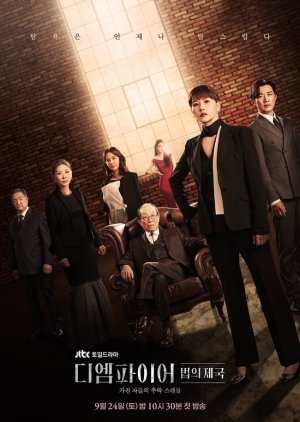







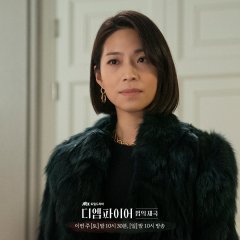
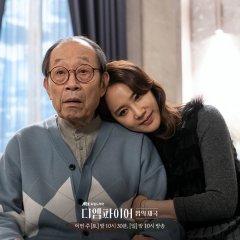

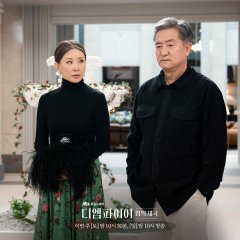
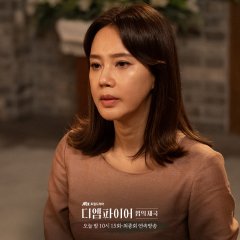

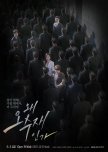






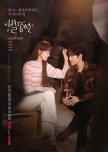


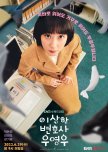

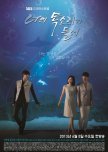

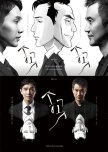
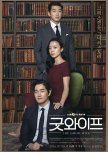


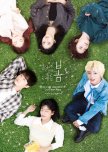
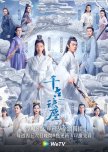
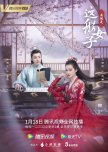
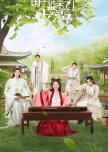

















Comentários